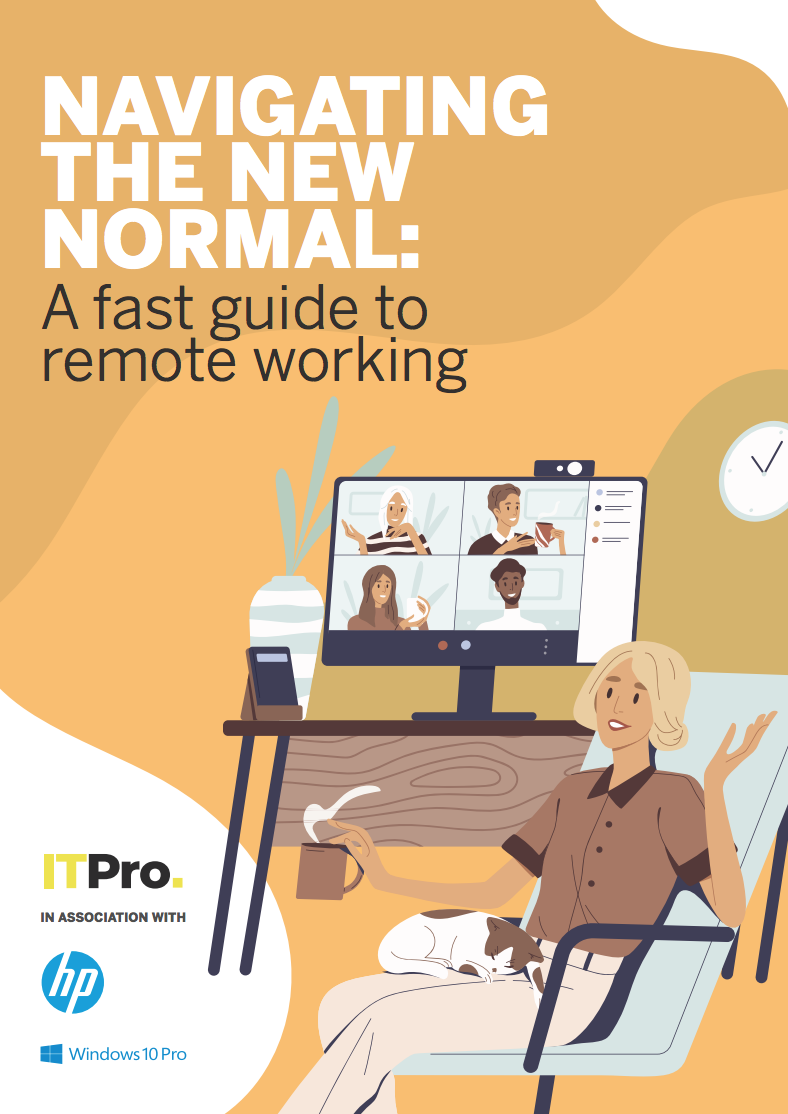The softer skills CIOs will need to adopt for the future
The world of work is changing and tech leaders must change their approaches to keep up

The COVID-19 pandemic has unexpectedly sped up digital transformation processes already underway across all kinds of companies in multiple industries, but it’s also delivering unforeseen changes in the way senior executives such as CIOs must act in their day-to-day roles.
Outdated boardroom and leadership styles are being stripped away amid the rise in remote working from home, and traditional and incumbent ways of doing things are fast being ripped up so businesses and their employees can survive, and hopefully still thrive, despite this uncertainty.
For the CIO of right now, and of tomorrow, this has signalled a major rethink on how to adapt their job description from a core focus on information technology and computer systems to also including a broader range of softer skills that can bring more humanity to their digitally-led enterprise responsibilities.
So what are these softer skills and how are things already changing?
According to research for the Executive MBA Council (EMBAC) report A New Way of Learning and Working, employers are in agreement that new leadership models are emerging with stronger roots in emotional intelligence and agility as well as conscious, continuous learning.
Tim Sadler, CEO at security company Tessian, suggests empathy should be a top priority. Citing his company's own research on 2020's new hybrid working models, which showed a third of IT leaders are worried about their teams being stretched too far in terms of time and resource, he says: "CIOs need to be empathetic to the rising pressures that remote working arrangements have on IT teams in order to keep them motivated and retain talent.
"The good news is that a high percentage already demonstrate these soft skills; half ranked employee wellbeing as their top concern should workforces continue working remotely."
Sign up today and you will receive a free copy of our Future Focus 2025 report - the leading guidance on AI, cybersecurity and other IT challenges as per 700+ senior executives
CIOs must examine their own leadership style
Roy Aston, of Paysafe, is one CIO already reconsidering what the role means and he believes it’s now much more important to consider your "leadership shadow".
He explains: "I have come to learn that your ability to influence and have impact as a leader is dependent on the relationships you have built with the people you work closely alongside. In our current remote working environment, this has meant I'm trying to be even more aware of my mood or how I come across in virtual meetings and the tone of my emails.
RELATED RESOURCE

Navigating the new normal: A fast guide to remote working
A smooth transition will support operations for years to come
"In this increasingly digital environment, it has become even more important not to hide behind a screen dealing with the transactional elements of the role, but to take time to interact (digitally), with a genuine authentic interest in people."
For Kais Bouchiba, global artificial intelligence and machine learning strategist at MSC Software, one key change for CIOs will be to enhance their listening skills. He says this will enable them to hear and recognise valuable input from the "new guard" of employees and use bottom-up knowledge in their strategy.
Bouchiba says: "This year has seen so much of the workforce working from home or furloughed, and many have taken this opportunity to educate themselves on tools like AI and digital twins, ensuring it is now more important than ever for CIOs to learn how to listen to their employees and take their new, diversified skills onboard.
"These younger professionals are coming into the industry with fresh perspectives and often superior experience in new approaches such as machine learning (ML) and data analytics, so to fully exploit the potential of these powerful tools it is imperative the C-suite gets everyone on board and contributing. This means focusing on interdisciplinary collaboration and bringing together a diversity of perspectives."
Eva Murray, tech evangelist at database company Exasol, believes storytelling could also become a key soft skill, due to the amount of data companies are set to produce – and analyse – through AI and machine learning.
She says: "Data and analytics are now the centrepiece of every organisation. CIOs and CDOs must identify how data can help and demonstrate value quickly by becoming a storyteller to sell their insights internally. A story makes the benefits of data clear for those who may be turned off by hard statistics."
CIOs recognise the need for change
According to Lily Haake, head of CIO Practice at global technology recruiter Harvey Nash, CIOs are switching their focus. For the first time in the history of its CIO Survey with KMPG, "strong culture and leadership" was cited as the most important factor in attracting and retaining key technology talent by the 4,000+ people it spoke to.
She says: "This is now even more important than 'good remuneration', which is remarkable, but perhaps unsurprising. CIOs now understand that having a strong employee value proposition is vital if they want an engaged, productive and creative workforce."
Haake suggests technology leaders must not neglect the sense of "belonging and purpose" needed in today's successful working environment, adding: "The credentials of a great CIO now go far beyond just a strong technical grounding and a few decades of leadership experience. The ownership of technology is becoming increasingly distributed throughout an organisation, so the CIO will need to work in partnership with their peers in marketing, finance and operations in order to get the best value from technology. Adaptability is also key in this new, fast-moving world – a strong CIO can fail fast and learn from their mistakes.
"Empathy and openness are critical, as well as an appreciation for diversity of thought. Data from this year's CIO Survey confirms more diverse tech teams outperform on a whole range of success measures, such as 'trust and collaboration' and 'ability to innovate'. CIOs who cultivate a truly diverse and inclusive organisation will find themselves ahead of the pack."
Such diversity of thought will rightly be crucial for those CIOs focused on rolling out AI and machine learning initiatives, in order to prevent inherent biases being programmed in.
But change only comes when there is a recognised desire for it and Cliff Green, director of consultancy firm Harmonic, believes being fully cognizant of the shift is everything.
He says: "The skills needed today are, in many ways, less rooted in the technical side of things. As the role of the CIO has expanded, from integration only to business enabler, so too have the skills required. Above all else, the CIO of today needs a total awareness of their business and the direction of that business, and not just a focus on their technological niche.
"If you combine project management skills with a great nose for business direction, you'll be a CIO that can effectively react to change and make sure your organisation is prepared for the future."
Jonathan Weinberg is a freelance journalist and writer who specialises in technology and business, with a particular interest in the social and economic impact on the future of work and wider society. His passion is for telling stories that show how technology and digital improves our lives for the better, while keeping one eye on the emerging security and privacy dangers. A former national newspaper technology, gadgets and gaming editor for a decade, Jonathan has been bylined in national, consumer and trade publications across print and online, in the UK and the US.
-
 Redefining resilience: Why MSP security must evolve to stay ahead
Redefining resilience: Why MSP security must evolve to stay aheadIndustry Insights Basic endpoint protection is no more, but that leads to many opportunities for MSPs...
-
 Microsoft unveils Maia 200 accelerator, claiming better performance per dollar than Amazon and Google
Microsoft unveils Maia 200 accelerator, claiming better performance per dollar than Amazon and GoogleNews The launch of Microsoft’s second-generation silicon solidifies its mission to scale AI workloads and directly control more of its infrastructure
-
 Gender diversity improvements could be the key to tackling the UK's AI skills shortage
Gender diversity improvements could be the key to tackling the UK's AI skills shortageNews Encouraging more women to pursue tech careers could plug huge gaps in the AI workforce
-
 Is diversity still a challenge in the channel?
Is diversity still a challenge in the channel?Industry Insights Despite progress, diversity remains a challenge in the tech channel, as women represent less than a quarter of the UK’s tech workforce and still face structural and cultural barriers
-
 Women in tech are plagued by imposter syndrome – here are three tips to overcome lingering doubts
Women in tech are plagued by imposter syndrome – here are three tips to overcome lingering doubtsNews Imposter syndrome among female tech workers gets worse as careers progress
-
 ‘Employees aren’t having it’: European workers are pushing back on the US-style ‘always on’ work culture – many are worried about the rise of ‘hustle culture’ and a third would quit if forced back to the office
‘Employees aren’t having it’: European workers are pushing back on the US-style ‘always on’ work culture – many are worried about the rise of ‘hustle culture’ and a third would quit if forced back to the officeNews New research shows European workers are pushing back on the 'always on' culture and fear US-style corporate policies creeping into workplaces.
-
 Women show more team spirit when it comes to cybersecurity, yet they're still missing out on opportunities
Women show more team spirit when it comes to cybersecurity, yet they're still missing out on opportunitiesNews While they're more likely to believe that responsibility should be shared, women are less likely to get the necessary training
-
 Imposter syndrome is pushing women out of tech
Imposter syndrome is pushing women out of techNews Men have dominated the tech space, though some evidence suggests that it's beginning to change
-
 DEI rollbacks could exacerbate tech talent shortages – nearly half of recruitment leaders worry diversity cuts will impact their company’s appeal and employee retention
DEI rollbacks could exacerbate tech talent shortages – nearly half of recruitment leaders worry diversity cuts will impact their company’s appeal and employee retentionNews Finding talent with AI skills has already become a major challenge for enterprises, but with some enterprises shelving DEI hiring practices, research suggests the situation could get worse.
-
 Women in tech think the industry has changed for the better, but there’s still more work to be done
Women in tech think the industry has changed for the better, but there’s still more work to be doneNews 84% of female tech leaders in the US believe the industry has changed for the better, but lingering issues still persist.